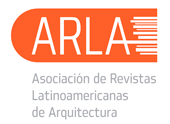PATRIMONIO CULTURAL Y DESARROLLO TERRITORIAL
Resumen
La propuesta parte de fundamentar la gestión integral del territorio en principios orientadores humanísticos y ecológicos y en estrategias flexibles que responden directamente a cada uno de los sistemas que inciden en el territorio, pero al mismo tiempo se propone adoptar una concepción sistémica del mundo considerando a los sistemas social y cultural como suprasistemas que permiten abordar la interpretación general del mundo desde lo social y la generación de alternativas de desarrollo endógeno a partir del patrimonio cultural tangible e intangible como elemento fundamental para consolidar la territorialidad y lograr un desarrollo armónico y sinérgico desde lo local. En particular, se propone mapificar y espacializar, a partir de herramientas metodológicas participativas, los conflictos culturales y los tangibles e intangibles patrimoniales más representativos del sistema cultural, como prerrequisito fundamental para la generación de nuevos enfoques de desarrollo regional, basados en la definición de objetivos comunes que permitan enfrentar y construir proyectos asociativos que tengan legitimidad, que potencialicen las múltiples identidades locales y que fortalezcan la participación de la población en la construcción de las identidades regionales enfocadas al logro colectivo de un desarrollo integral del territorio.
ABSTRACT
The proposal starts from laying the foundations of the integral maneuver of the territory in humanistic and ecological principles of orientation and in flexible strategies that directly respond to each one of the systems that impact in the territory, but at the same time intends to adopt a systemic conception of the world considering the social and cultural systems as suprasystems that allow to approach the general interpretation of the world from the social thing and the generation of alternative endogenous development starting from the tangible and intangible cultural patrimony as fundamental element to consolidate the territoriality and to achieve a harmonic and synergic development from the local thing. In particular, it intends to map and space, starting from methodological participative tools, the cultural conflicts and the tangible and intangibles representative patrimonial of the cultural system, as fundamental prerequisite for the generation of new regional development focuses, based on the definition of common objectives that allow to face and to build associative projects that have genuineness, that power up the multiple local identities and that they strengthen the population’s participation in the construction of the regional identities focused to the collective achievement of an integral development of the territory.
Referencias
Borja M. “La región y la nación en la sociedad global: entre comunidades reales y comunidades imaginadas”, en Instituto de Estudios Políticos y Relaciones Internacionales IEPRI. Colombia cambio de siglo. Balances y perspectivas. Bogotá, Planeta. 2000.
Holland, J. Can there be a unified theory of complex adaptive systems? In Morrovitz, H.J. & Singer, J.L. (Eds), The mind, the brain, and complex adaptive systems. Proceedings Volume XXII, Santa Fe Institute, Studies in the Sciences of Complexity. Reading, MA: Addison-Wesley Publishing Company. 1995.
Lineamientos para el ordenamiento territorial departamental. 1a Ed., Bogotá, Ministerio de Desarrollo Económico. 1997. pp 24-26.
Max Neff M. Desarrollo a Escala Humana - Una Opción para el Futuro -, 1986.
Morín, E. Introducción al pensamiento Complejo. Gedisa. Barcelona, 1997.
Pérgolis J. C. Bogotá Fragmentada: Cultura y Espacio Urbano a fines del Siglo XX, 1998.
Sheldrake R. La presencia del pasado. Resonancia mórfica y hábitos de la naturaleza, Barcelona, Editorial Kairós. 1990.







